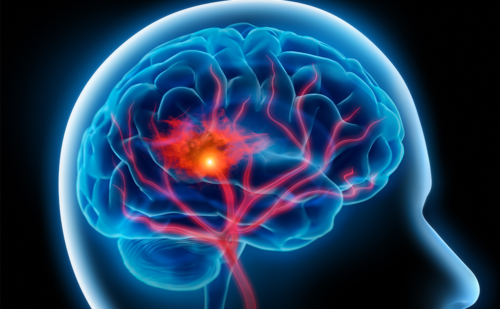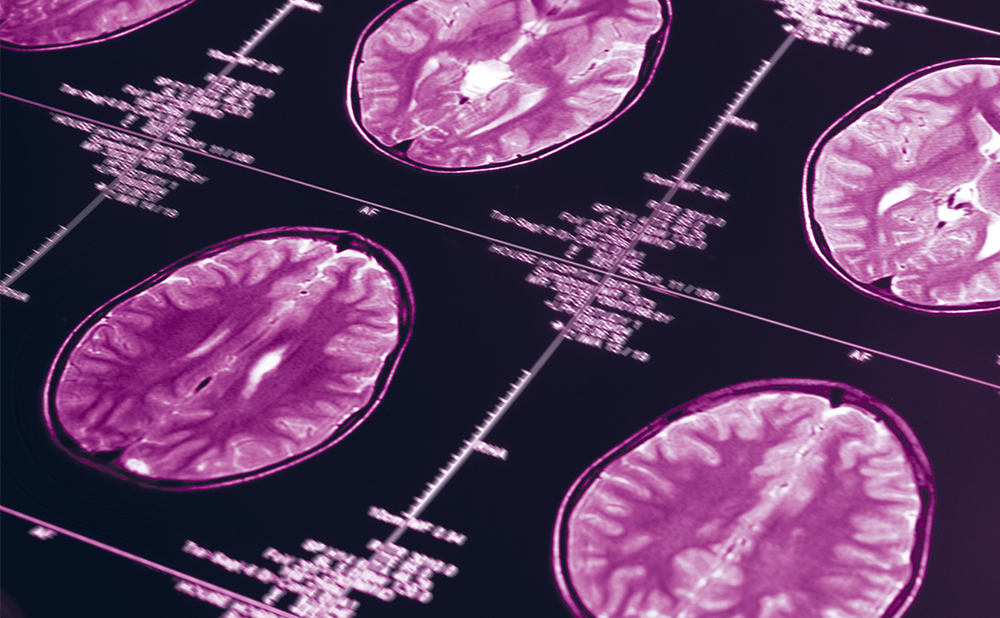Alzheimer’s disease (AD) is a progressive neurodegenerative disorder which presents clinically as progressive cognitive impairment, loss of ability to carry out activities of daily living and the development of behavioural problems. Currently, research is focused on new medications to prevent or slow the advancement of the disease, and on techniques for earlier diagnosis. However, to date, medications aimed at disease modification have failed in clinical trials owing to lack of effect, or perhaps because they have not targeted a sufficiently early AD population.
Alzheimer’s disease (AD) is a progressive neurodegenerative disorder which presents clinically as progressive cognitive impairment, loss of ability to carry out activities of daily living and the development of behavioural problems. Currently, research is focused on new medications to prevent or slow the advancement of the disease, and on techniques for earlier diagnosis. However, to date, medications aimed at disease modification have failed in clinical trials owing to lack of effect, or perhaps because they have not targeted a sufficiently early AD population.
While we await disease-modifying treatments, two symptomatic therapies are currently available: the cholinesterase inhibitors (ChEIs; donepezil, galantamine and rivastigmine) and memantine, an N-methyl-D-aspartate (NMDA) receptor antagonist. Both categories of drug have demonstrated efficacy in AD when used as monotherapy.1–3
Despite the ChEIs and memantine having been available for some time, their use is still being optimised. At present, ChEIs are approved for the treatment of mild to moderate AD (and severe AD in some countries) and memantine is approved for the treatment of moderate to severe AD. Consequently, in the moderate stages of the disease, there is a period of overlap during which both drugs are indicated and could, therefore, be taken in combination. The aim of this short article is to summarise the current data on combination therapy with memantine and a ChEI in moderate to severe AD. More detailed reviews are available elsewhere.4,5
Efficacy Benefits, Across All Domains, Over and Above Monotherapy
The results of two six-month randomised controlled trials (RCTs) on the use of combination therapy in AD have been published. In the first study, patients with moderate to severe AD who were already receiving stable donepezil were allocated to receive concurrent memantine or placebo.6 Combination therapy produced significant benefits over donepezil and placebo in all symptomatic domains: cognition (p<0.001; observed cases [OC]), function (p=0.02; OC), behaviour (p=0.01; OC) and global outcome (p=0.03; OC).6 Similar results were seen for last observation carried forward analyses.6 This large study (404 patients randomised) provides the key evidence in support of combination therapy. Detailed post hoc analyses of this RCT have found significant benefits for combination therapy over donepezil and placebo in several cognitive, functional and behavioural subdomains, including memory, praxis, language, grooming, watching television, agitation/aggression and irritability/lability.7–9 In addition to the benefits experienced by patients, caregivers reported significantly less distress owing to the patients’ agitation, night-time behaviour and appetite changes.7 The second RCT was performed in patients with mild to moderate AD.10 In this group of patients, combination therapy with memantine and a ChEI did not show significant benefits over a ChEI and placebo, although there was a trend towards a benefit in cognition (p=0.186; OC).10
Memantine is licensed to treat moderate to severe AD (Mini Mental State Examination [MMSE] <20), so a meta-analysis was performed on the subgroup of patients with MMSE <20 from both of these combination therapy RCTs; only concurrent donepezil was permitted.11 Significant benefits were seen for memantine and donepezil combination therapy, in comparison with therapy with donepezil and placebo, in terms of cognition, function, behaviour and global outcome.11
In both RCTs, combination therapy was safe and well tolerated, with a similar incidence of adverse events to the ChEI and placebo group.6,10 Furthermore, the addition of memantine to a ChEI reduced the gastrointestinal adverse effects associated with ChEIs.2,12
Reduced Occurrence of Clinical Worsening
Patients with AD deteriorate over time and stabilising the patient, or even reducing the amount of clinical worsening, is a useful outcome. Based on the two combination therapy RCTs, two pooled analyses have been conducted to assess clinical worsening, where clinical worsening was defined as concurrent decline in cognition, function and global status. Both pooled analyses considered the subgroup of patients with moderate to severe AD (MMSE <20); the first analysis permitted any concurrent ChEI, while the second permitted only concurrent donepezil.13,14 In the first analysis, combination therapy with memantine and a ChEI almost halved the occurrence of marked clinical worsening in comparison with a ChEI and placebo (9.8 versus 18.3 %; p<0.01; OC).13 In the second analysis, fewer than half of the patients receiving combination therapy with memantine and donepezil showed marked clinical worsening compared with those receiving donepezil and placebo (7.9 versus 18.5 %; p<0.001; OC).15
Long-term, Real-world Benefits
In addition to the benefits seen in RCTs, combination therapy has shown real-world effectiveness. A US study followed 943 probable AD patients, with a mean (SD) follow-up time of 62.3 (35.8) months, to determine the time to nursing home admission.16 Compared with patients who received ChEI monotherapy, patients who received memantine and ChEI combination therapy were more than seven times less likely to be admitted to a nursing home (relative hazard 0.13; 95 % confidence interval 0.03–0.56).16 A second real-world study followed 382 subjects with probable AD over a mean treatment time of 22.5 months.17 Patients receiving combination therapy had significantly slower rates of deterioration in cognition and ability to perform activities of daily living compared with patients receiving ChEI monotherapy (both p<0.001), and these benefits appeared to increase with treatment duration.17
Conclusions
In RCTs of patients with moderate to severe AD, combination therapy with memantine and a ChEI produces symptomatic benefits in cognition, function, behaviour and global outcome. Evidence from observational studies suggests that the benefits of combination therapy are sustained over the long term and appear to increase with time. Based on the available data and drug licensing, patients with mild AD should be started on a ChEI, with memantine added when the disease reaches the moderate stages (MMSE <20). For patients first diagnosed in the moderate stages of AD, combination therapy could be initiated, although the treatments should be started and titrated one at a time. In the future, the optimal treatment is likely to consist of disease-modifying therapy with concurrent symptomatic therapies. However, at present, memantine and ChEI combination therapy is the optimal treatment option, since it allows patients with AD to retain cognitive abilities and to remain functional and in home care, for longer. ■














